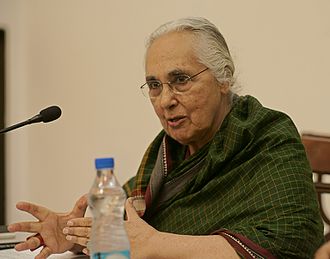 Aditya Bahl in Sidecar:
Aditya Bahl in Sidecar:
July 1957. A 26-year-old Romila Thapar waits at Prague Airport. She is dressed in a sari. The pockets of her overcoat are bulging with yet more saris. ‘It is blasphemous’, she laments in her diary, to have crumpled ‘the garment of the exotic, the indolent, the unobvious, the newly awakening East’. But there is no more room in her suitcases. They are stuffed with photographic equipment (‘cameras, cameras, more cameras’) and saddled with ‘large bundles of books and papers, strapped together with bits of string’. Thapar – today the pre-eminent historian of ancient India – is on her way to China along with the Sri Lankan art historian Anil de Silva and the French photographer Dominique Darbois. Earlier in the year, the Chinese Society for Cultural Relations with Foreign Countries had accepted de Silva’s proposal to study two ancient Buddhist cave sites in the northwestern Gansu province, Maijishan and Dunhuang. After some hesitation, Thapar, then a graduate student at SOAS in London, agreed to join de Silva as her assistant. She had been nervous about her limited expertise in Chinese Buddhist art, as well as the practical difficulties posed by the cave sites. And not without good reason. Just imagine crawling about in those rock-cut caverns ‘enveloped in billowing yards of silk’.
But China was still far away. The three women were waiting for their delayed connection to Moscow. The latest, much-publicized, Soviet plane had got stuck in the mud. Loitering in the terminal, Thapar observed the entourage of the Indian actors, Prithviraj Kapoor and his son Raj, a newly anointed superstar in the Socialist Bloc. As heavy rains poured outside, some members of the group began discussing the film Storm over Asia (‘Would they think it rude if I gently pointed out to them that the film was not by Sergei Eisenstein, but by Vsevolod Pudovkin, and that the two techniques are so different that one can’t confuse them’). Elsewhere, a French family tune into Radio Luxembourg; a young African man listens to the BBC on his radio; the terminal loudspeakers play the Voice of America (‘poor miserable propagandists’). Late into the night, Thapar leisurely smokes her black Sobranie. She thinks of herself ‘an overburdened mule wrapped in folds of cloth’.
More here.
